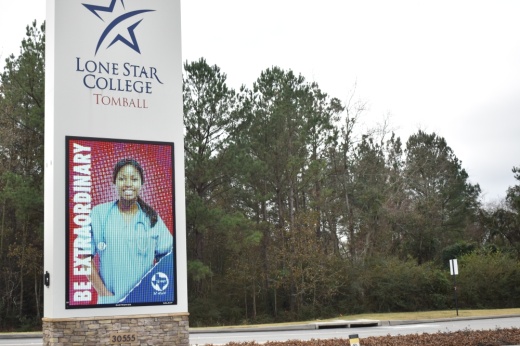The Lone Star College System board of trustees approved a motion to add a new Patient Care Technician Level I Certificate to LSC-Tomball at a board meeting Feb. 2. The certification program will be available through LSC-Tomball in dual-credit partnership with Tomball ISD and its new P-TECH program, or Pathways in Technology Early College High School, as part of the Tomball Star Academy.
The Patient Care Technician Level 1 Certificate curriculum is designed to prepare students for an entry-level position as a patient care technician. According to the Lone Star College website, a patient care technician assists doctors and nurses in a variety of health care settings to provide direct care to patients, such as bathing, feeding, performing safety checks, reading EKG monitors and performing phlebotomy.
Students interested in the certification program will take courses, such as phlebotomy—the opening of a vein to draw blood or inject fluid—electrocardiography, which is a recording of the heart's electrical activity; health occupations professionalism; medical terminology; and nursing aide.
Megan Mariveles, dean of health sciences at LSC-Tomball, said the higher demand for a dual-credit workforce drove the negotiation for the certification in patient care.
"It was necessary to collaborate with our partners to support the demand and growth they are seeing in career and technology education," she said in an email. "Many students are seeking careers in the health care industry, and though Lone Star College-Tomball offers phenomenal programming in this area, they were not specifically designed with a co-enrollment model in mind. This led to the need to develop an additional certification that could support a nontraditional student population that is eager to engage in health sciences."
According to The Bureau of Labor Statistics, the need for patient care technicians is expected to grow in the North Houston area by approximately 9% through 2028. Mariveles said this is a faster pace of growth than other occupations.
"The current design and intent of this certification will help students make clear connections between their secondary and postsecondary education," she said. "Students are able to combine their introduction of career and technology education on the secondary level with advance academic content at the collegiate level. Additionally, students will gain a well-rounded view into entry-level health science career fields, as they will be exposed to multiple areas of practice."
Before implementation of the program can begin, approval is still needed by The Higher Education Coordinating Board as well as The Southern Association of Colleges and Schools Commission on Colleges. The expected timeline for submission at the state level is expected by fall 2023 with regional approval slated for spring 2024, according to Mariveles.
Mariveles said if all submissions are successfully approved, the program will be implemented by the 2024-25 academic year.





